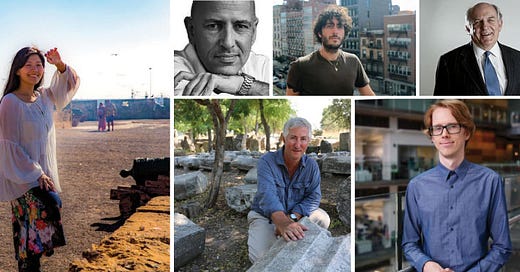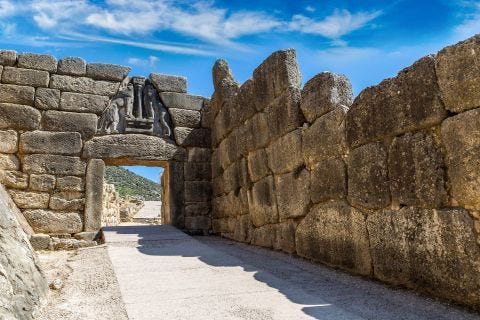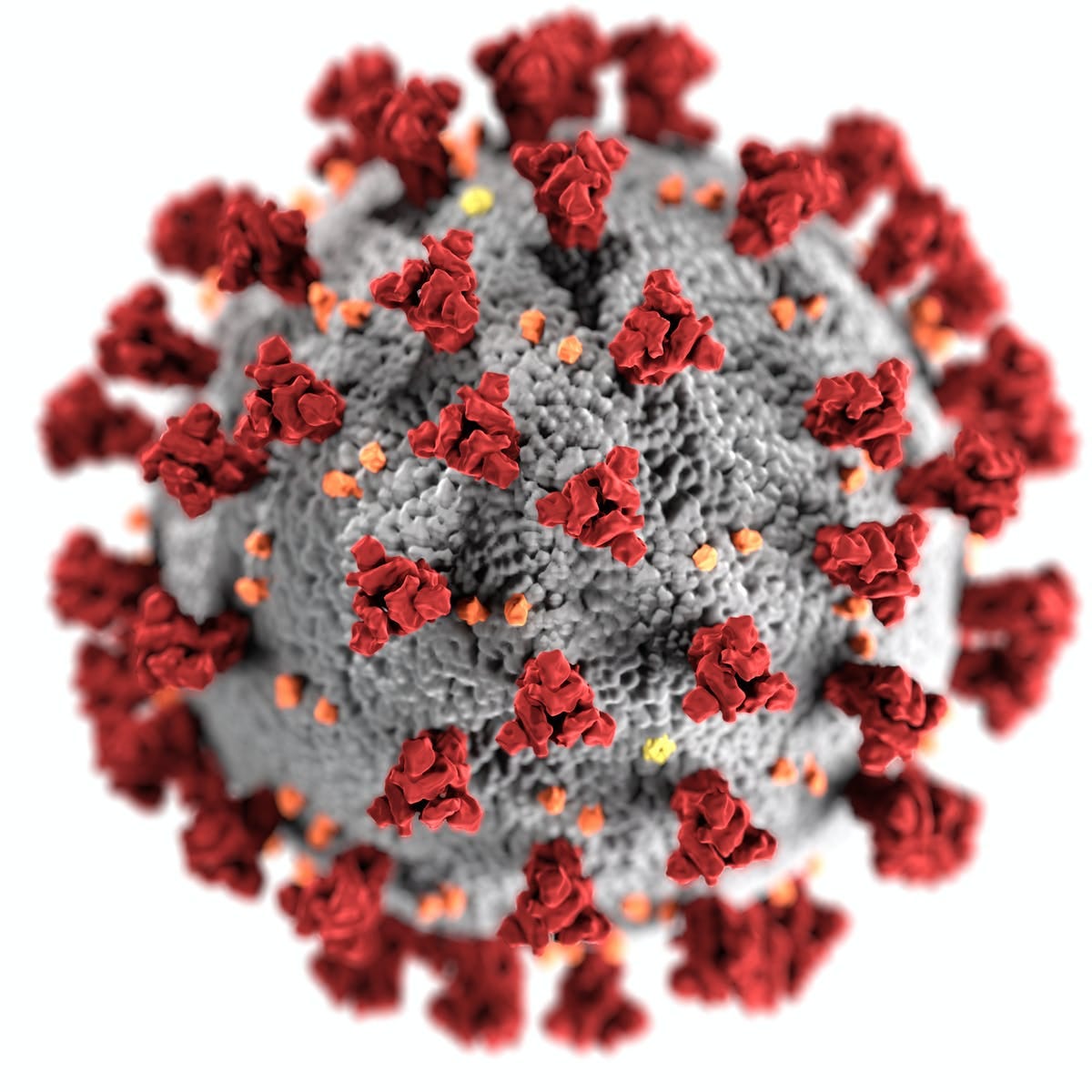Unsupervised Learning is a bit over a year old now. In that time I’ve posted 71 podcasts, but this Substack has been steadily gaining subscribers all year (paid subscriptions have increased fourfold in the past year, so fully 80% of you joined me since this time last year. Likewise free subs: threefold increase since this day last year), so I’ve always felt some of my best early episodes went under the radar more than the guests merited. Here I want to resurface some of those worthiest conversations for anyone who missed them.
The very first podcast (ungated) on this Substack was with Anders Bergstrom on his paper examining the population genetics of modern dogs using ancient DNA. It’s hard not to come up with genetics questions when you behold the crazy phenotypic variety among the domesticated dog breeds in our lives. This podcast is a great starting place for those queries. It turns out, for example, that African Basenjis are much more closely related to ancient Near Eastern dogs than modern Near Eastern dogs are. Also, Indo-Europeans brought their dogs to Europe, but there the steppe lineages seem to have died out. Instead, the only region where steppe lineages persist today is China (I suspect this has something to do with Scythians). Canine evolution is a generally popular enough topic that Quillette asked me to write about Bergstrom’s paper at length, and Jonah Goldberg had me on his podcast The Remnant, to talk about my Quillette piece.
I hear Anders is coming out with a new paper, so a second chat might be in order soon.
Charles Murray (ungated) is the author of The Bell Curve: Intelligence and Class Structure in American Life, Coming Apart: The State of White America, 1960-2010, and Human Accomplishment: The Pursuit of Excellence in the Arts and Sciences, 800 B.C. to 1950, among many other books. He’s retired from The American Enterprise Institute now, living in rural Maryland, with more time to reflect. So I wanted to probe him on his background (he grew up in Iowa), and where he thinks America is going over the long-term (he’s quite ambivalent though tries to retain his Midwestern optimism). The podcast was recorded in the fall of 2020, and looking back, we find his rosy view of how the COVID-19 pandemic would play out in the US ran up against the unfortunate reality of new variants that shifted the herd immunity threshold upward.
Social media is usually a cesspool, but Eric Cline (ungated) is someone I got to know on Twitter, though I’d been familiar with his work through his excellent book 1177 B.C.: The Year Civilization Collapsed. My primary interests are genetics, evolution, and paleoanthropology, so I’m not surprised when I run into people from those fields on my Twitter. But I am not as familiar with the academic world of history and archaeology, so when Eric showed up in my “replies,” I was flattered to know I was on his radar. I’ve been fascinated with Bronze-Age civilizations since I was a young child, so I was keen to find out what we knew in 2021 that would have surprised the little boy who raptly watched Michael Wood’s miniseries on the Trojan War in the late 1980’s.
Eric is working on a book on Dark Age and Archaic Greece now, and promised he’ll come back to talk about that.
If you are minimally aware of the wonkish end of contemporary electoral politics, you know who David Shor (ungated) is. If you don’t, here is a profile in New York Magazine from March of 2021. David was the target of a cancellation attempt in the June of 2020, which you can read about in this old Vox piece by Matt Yglesias from that summer. As the saying goes, “you come at the king, you best not miss.” I talked to David in the fall of 2020, when he was already famous, but not yet mega-famous. At the end of the conversation, he also noted that it was nice to talk about different things, like his Sephardic Jewish background. I aim for these podcasts to be relatively time-insensitive, so I wasn’t interested in fine-grained punditry.
I marked the transition from 2020 to 2021 with a conversation with my friend Armand Leroi, an evolutionary biologist who also could be a candidate for “the most interesting man in the world” (and no, not because for a period in the 2010’s he dated Jerry Hall, Mick Jagger’s ex, and Rupert Murdoch’s now-wife). Armand is the author of Mutants: On Genetic Variety and the Human Body and The Lagoon: How Aristotle Invented Science. Mutants is a very brisk, dense read, while The Lagoon meanders far more. Armand is candid that The Lagoon grew so extensive because whereas as a geneticist he was very confident while writing Mutants, The Lagoon’s focus on the history of science left him with a completist urge to head off accusations of dilettantism (I enjoyed The Lagoon, but I like big books). I first started talking to Armand when I did a Q & A with him in 2005, and we had a lot to catch up on, as a lot has changed in science and culture in that period (for example, I doubt Armand would have been allowed to pen an op-ed in The New York Times defending the race concept from a biological perspective today).
Finally, in early January of 2021, I discussed the “lab leak” theory with Alina Chan (ungated). Today she’s the co-author of Viral: The Search for the Origin of COVID-19, but at the time Alina was experiencing a great deal of blowback to her questioning the details of the beginnings of the pandemic in China. I wanted to talk to her because there was a strange discordance between what people were saying in public (or not saying), and the sentiment among many geneticists I knew who thought that she was well within her rights to express doubts. In May of 2021, some of the people who I had heard were privately supportive of Alina publically put their names to a comment in Science, Investigate the origins of COVID-19.
Throughout 2021, I’ve posted at least one podcast per week. Sometimes I post free bonus podcasts that are more timely, like when I talked to Richard Hanania for half an hour in January 2020 about whether there’ll be an American Civil War, or brought on Vagheesh Narasimhan to talk about Dragon Man. But if it’s a standard paid podcast, one of my goals is to make it bear relistening years later. My standard weekly podcasts (and transcriptions) are for paid subscribers only, though I ungate the audio after two weeks, so you can add the podcast on Apple, Spotify and Stitcher.






